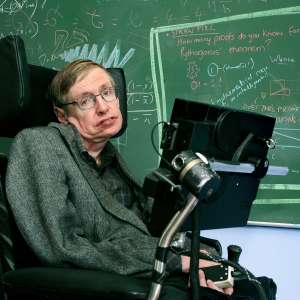The greatest idea of Stephen Hawking's scientific career truly revolutionized how we think about black holes. They're not completely black, after all, and it was indeed Hawking who first understood and predicted the radiation that they should emit: Hawking radiation. He derived the result in 1974, and it's one of the most profound links ever between the worlds of the quantum and our theory of gravitation, Einstein's General Relativity.
And yet, in his landmark 1988 book, A Brief History Of Time, Hawking paints a picture of this radiation — of spontaneously created particle-antiparticle pairs where one member falls in and the other escapes — that's egregiously incorrect. For 32 years, it's misinformed physics students, laypersons, and even professionals alike. Black holes really do decay. Let's make today the day we find out how they actually do it.









































